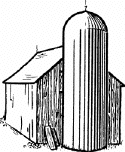
|
||||||||||||||||||||||||||||||||||||||||||||||||||||||
|
We met with their CEO, Peter Semmelhack, and their San Francisco-based consultant, Jeremy Toemann. Dinner was at Le Colonial in San Francisco. I'll try first to list the pieces of what it is, in the same style as the What Twitter Is piece I wrote a few days ago, with the understanding that this will be less thought out since I've known about the company for a very short period of time. 1. It's an architecture for pluggable gadget components. There's a hardware interface, which I know little or nothing about (I'm a software guy). It was explained to me as "60 pins" -- they said they interface all the capabilities of the chip, whatever that means. But at a software level, each of the components interfaces with XML over HTTP. It's as if they read my mind. The pieces are all fractional horsepower HTTP servers. They are using RESTful interfaces everywhere. I haven't actually seen the XML, let's hope it's simple. 2. The designs for the components that Bug Labs is doing themselves are all open source. They're sharing everything. So they won't have any kind of lock in on the devices that are built with it. They asked if we thought they should connect with Stallman. I said of course. 3. There have a very sexy development platform which we saw screen shots of, but didn't actually see running. The users design the hardware products they want. They can share the designs, and code, or sell it if they want. My guess is that it'll be mostly shared. It's a powerful idea, and I believe very soon, realistic. 4. And there's the hardware itself. Again, we didn't see it, they showed us wood mockups, giving an idea of how the pieces fit together. They're going to ship with four initial components, a screen, GPS, a CPU, and ??? Every unit comes with wifi and USB. I'm sure I missed a lot of the details, I think I did get the gestalt. They said they will ship in the fall.
I really poked around during the dinner, said some challenging things, and it seems Semmehack's head is screwed on tight and his heart is in the right place. He didn't get rattled. He knows he may just be teaching his competitor's users what to ask for. He doesn't expect the major consumer electronics companies to get behind it. They are thinking small at first, which is great, because at first the opportunity will be small. Photos from tonight's dinner. I'm really glad someone is doing this. I anticipated it in my second How To Make Money On The Internet piece in early 2001, but I didn't expect it would actually happen so soon. Once again Fred Wilson impresses with his willingness to bet on big ideas. 2/13/01: "Every product that has an embedded computer will shift to user design. Today's companies become fulfillment houses, building products on contract. Manufacturing margins will shrink, the real value will be in the insight -- this is what people want now -- and the risk taken that today few manufacturers seem willing to take." PS: They should brief Doc Searls. He's going to love this.
Dare Obasanjo is fed up with A-list tech bloggers. TorrentFreak on a no-install Java-based client for BT newbies. Catheroo is a Fresca fan too! Bill Walsh, heroic coach of the 49ers, died today. Mashery is "on-demand API infrastructure." Ed Kohler asks why FireFox defaults to Atom 0.3 feeds. Michael Gartenberg on the competiton betw HD-DVD and Blu-ray. "The real competition here for both formats are not each other, it's DVD in the past and online distribution." Jim Forbes, a guy I used to hang out with in the 80s, illustrates how, in a moment of vulnerability, we sometimes reveal a truth about ourselves to the rest of the world.
This is a long-told tale here on Scripting News. The classic example are the movie rating data held in silos by sites like Netflix and Yahoo Movies. But whose data is it?? Seems it belongs to the users and they should be able to take it where they want. Sure Yahoo is providing a recommendation engine, that's nice (and thanks), but they also get to use my data for their own purposes. Seems like a fair trade. And I'm a paying customer of Netflix. They just lowered the price but I'd much rather have gotten a dividend in the form of being able to use my own data. Think of the mashups that would be possible. Wouldn't it be great to link up Match.com with movie ratings to find dates that like the same movies? Hacking Netflix: "Some of my Netflix Friends have rated thousands of movies, written scores of reviews, and have hundreds of movies in their queue." |
Dave Winer, 52, pioneered the development of weblogs, syndication (RSS), podcasting, outlining, and web content management software; former contributing editor at Wired Magazine, research fellow at Harvard Law School, entrepreneur, and investor in web media companies. A native New Yorker, he received a Master's in Computer Science from the University of Wisconsin, a Bachelor's in Mathematics from Tulane University and currently lives in Berkeley, California. "The protoblogger." - NY Times.
"The father of modern-day content distribution." - PC World.
"Helped popularize blogging, podcasting and RSS." - Time.
"The father of blogging and RSS." - BBC.
"RSS was born in 1997 out of the confluence of Dave Winer's 'Really Simple Syndication' technology, used to push out blog updates, and Netscape's 'Rich Site Summary', which allowed users to create custom Netscape home pages with regularly updated data flows." - Tim O'Reilly.
My most recent trivia on Twitter. Comment on today's On This Day In: 2006 2005 2004 2003 2002 2001 2000 1999 1998 1997.
|
|||||||||||||||||||||||||||||||||||||||||||||||||||||
|
© Copyright 1997-2007 Dave Winer. Previous / Next |
||||||||||||||||||||||||||||||||||||||||||||||||||||||
 I went to a real interesting dinner tonight in San Francisco, to get introduced to a New York-based startup,
I went to a real interesting dinner tonight in San Francisco, to get introduced to a New York-based startup,  Backing comes from
Backing comes from 




